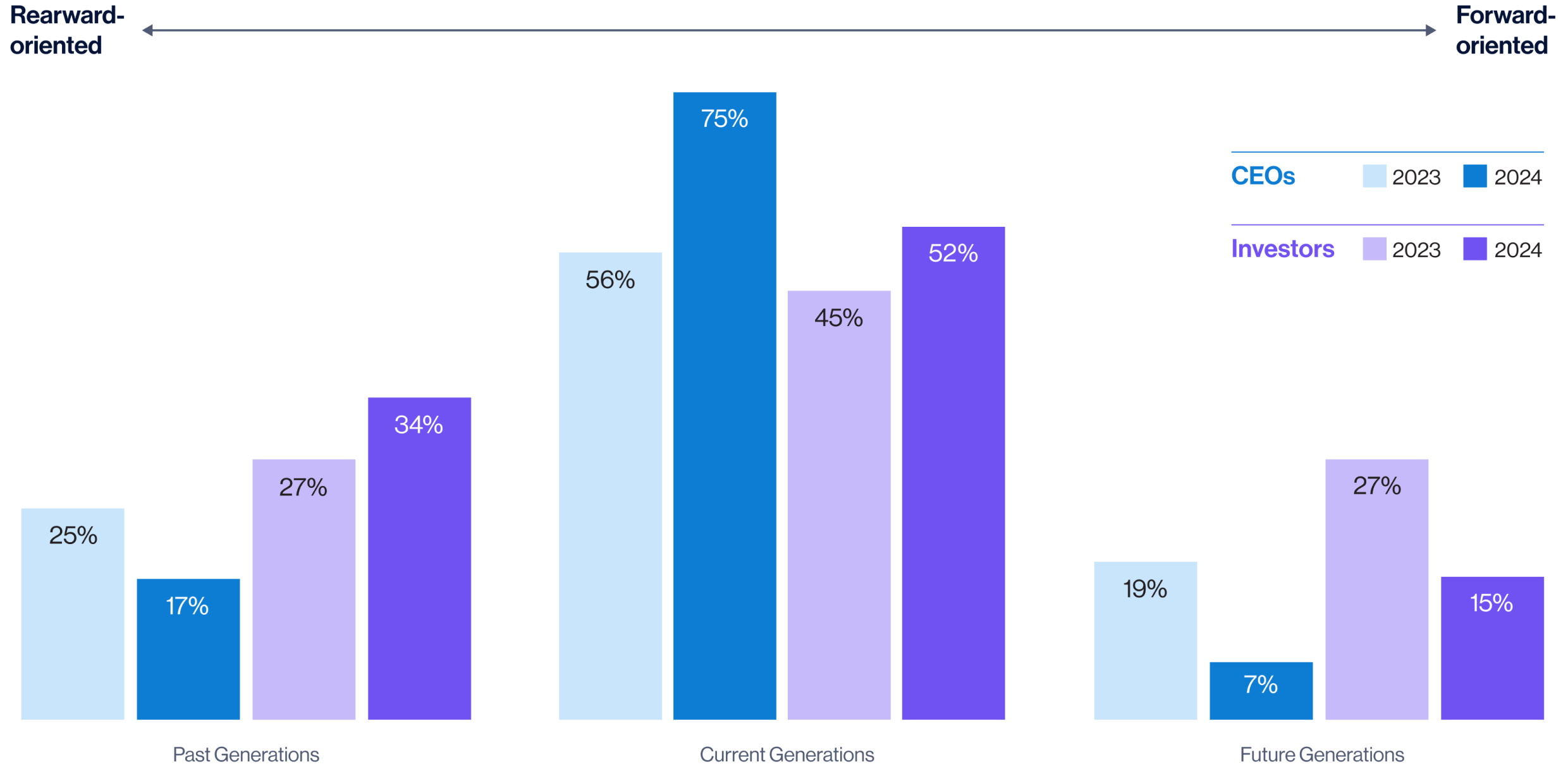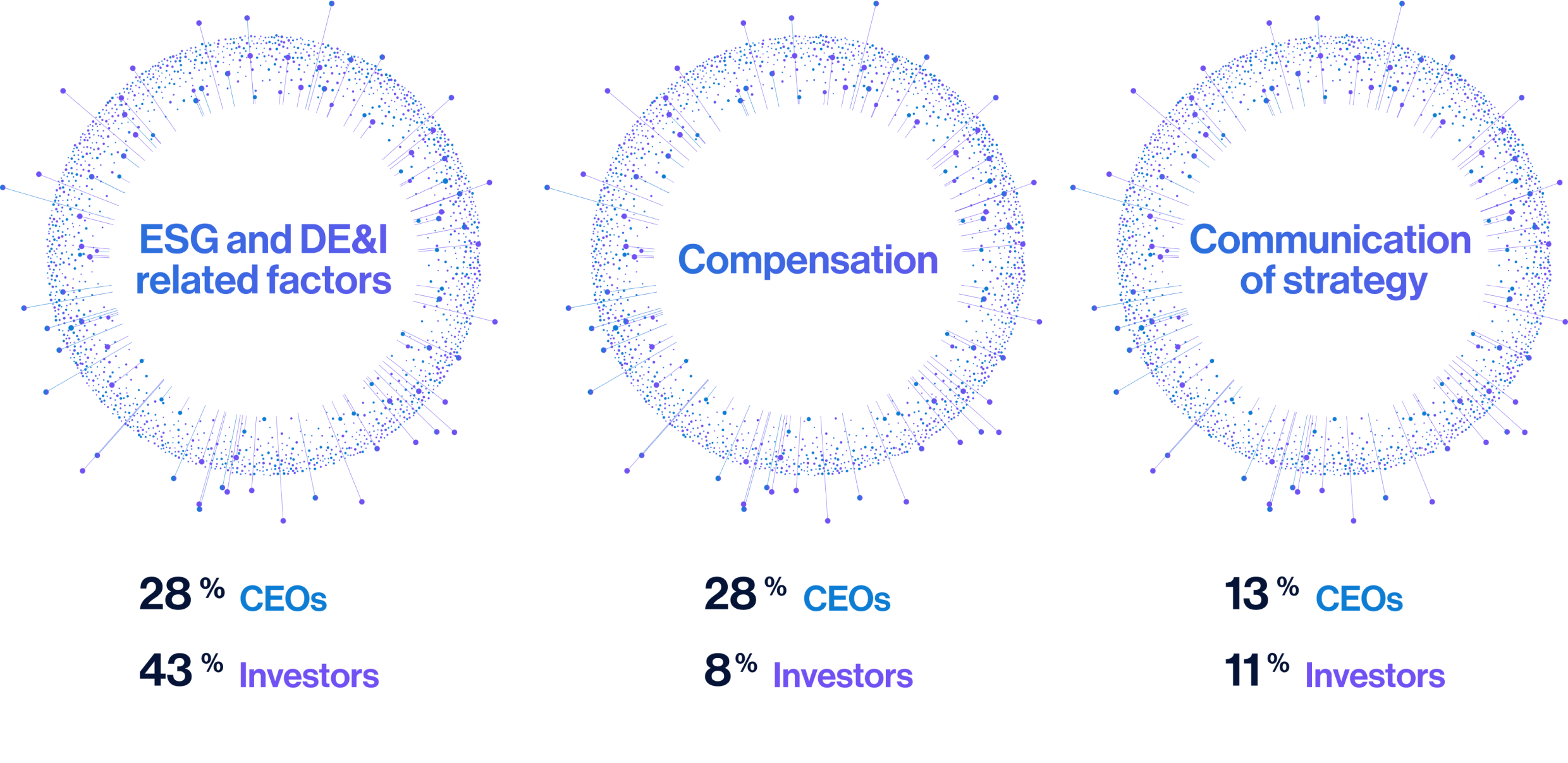Leadership
The ground under the feet of leaders is shifting as they experience a transformed employee-employer dynamic and a generational shift in the workplace. Millennials and Generation Z, who now make up the largest part of the workforce, put mental health, workplace discrimination and inequality high on their lists of societal concerns. They expect leaders to step forward on social issues, and they are more likely to speak out on their experiences at work.
However, the survey reveals that executive teams today overwhelmingly represent the perspectives of the current generation (rather than past or future generations). Today’s leaders clearly need to work harder than ever to listen, understand and respond as the rules of engagement continue to evolve.
Question: Thinking about your group / leading corporations’ groups of executive-level decision makers, do they represent the perspectives of:

Managing through unprecedented disruption is challenging and radically altering the leadership skills required of CEOs and their teams. The combination of skills and talents required of the next generation of CEOs that emerges from this year’s survey is fundamentally different from those emphasized just 12 months ago.
Current CEOs believe their successors should be equipped to understand rapid changes in technology, address uncertainty in the macro environment and build a strong culture from within – skills that will benefit the business today and into the future.
Question: What skills and talents will the next generation of CEOs need to bring to their jobs?

Compensation will always remain a key factor in retaining talent. However, investors (48%) and CEOs (28%) also clearly understand that companies’ DE&I and ESG practices are considered critical retention factors – and increasingly so – as the workforce tilts toward Millennials and Generation Z.
Question: What do you think the greatest retention challenge for leading corporations will be in the next 1-3 years?
